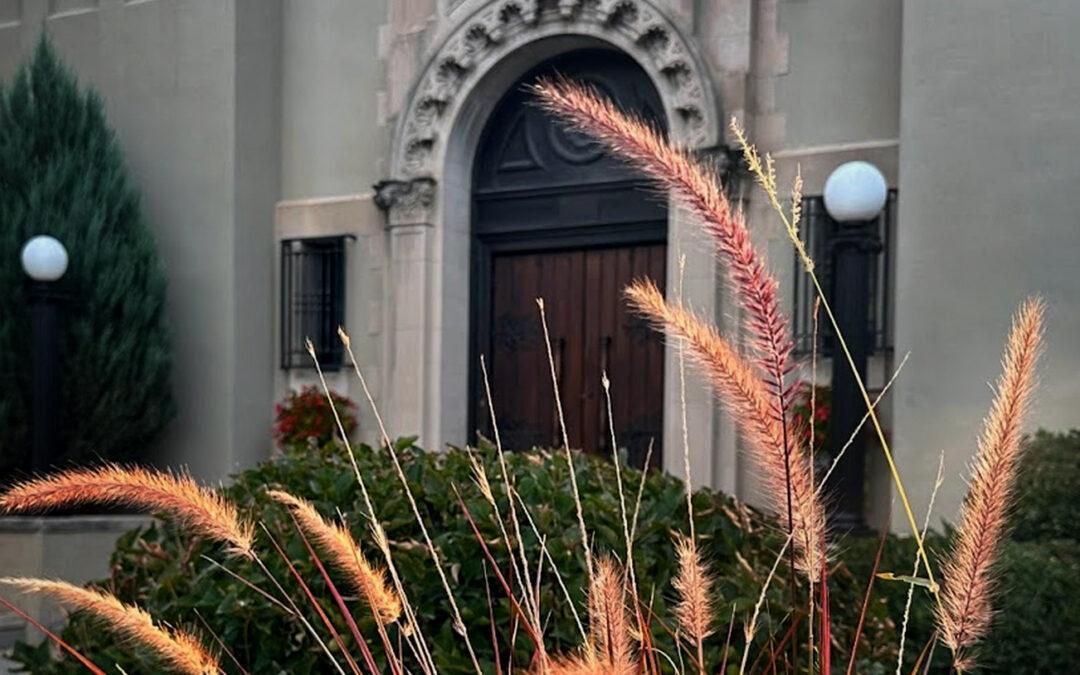Dear Friends,
One of the graces of my annual retreat this year was spending a good amount of time talking with God
about where I am at in my life – not “at” as when it comes to Cabrini but “at’ as when it comes to my
age. As I get near the optional retirement age for archdiocesan clergy of 70, I need to have a better
sense of what God is wanting of me. The retreat gave me a chance to chat with God about exactly that.
As I mentioned at Masses, there was no clear direction from God but lots of things to continue to pray
over.
One of the challenges we face is how our culture has come to view aging and illness. Most of us are
working really hard at not getting old or least not looking old. We all still want to see ourselves as young
and strong. As I have joked about my 50-year class reunion – there were a lot of old people there,
clearly, they were not my classmates. Also, as we age, we experience our bodies not working as well as
before but we tend to deny that we are declining.
One of the shifts in our culture that took place over the past 100 years is the shift to what has come to
be called a “therapeutic culture”. The goal for people in such a culture is to feel okay, to have a general
sense of well-being, to have self-actualization and/or to know the supremacy of self-determination.
When those possibilities no longer lie ahead of us, then we become depressed or feel like our life is over
or no longer meaningful. We no longer celebrate the wisdom that comes with age. Just listen to the
critiques of the present Pope, President or Congressional leaders – all wondering about their capabilities
to lead at their age.
This cultural approach to aging and illness was not always the case and is not necessarily the case
around the world. How important it is in the midst of this cultural view of life to remember the truths
that Jesus teaches. Here is an excerpt from an essay I recently read:
The fear of aging, suffering, and dying so characteristic of our therapeutic culture is indicative of our
refusal to die in Christ. We refuse to die in Christ because we have been deceived and have ourselves
been our own best deceivers. In a sad psychological indulgence of seeking after self-fulfillment and
realization, we forget and forsake our story for one that dares to tell us – with an optimistic wishfulness
– that we are our own ultimate hope. We embrace the therapeutic culture’s modernist assumption that
well-being is achieved through an autonomous psychological self who trusts in the medical restitution
narrative. In doing so, we trade in the Christian story of suffering and hope for that of the illusory
therapeutic optimist. As a result, we necessarily forget the identity and story that Jesus has already given
us, all of which creates a sort of embodied paranoia in which we are not quite certain what to fear
anymore. Through fear and self-deception we have chosen now our enemies to be such things as
growing old. But growing old is not an enemy in the story Jesus gave us, and it is a story we must now
reclaim. (Keith Meador and Shaun Henson, 2003)
Suffering and dying are a part of being human. They are a part of the life Jesus lived when he came
among us. This life will inevitably include mysteries of illness, suffering, growing old and dying. Jesus
promised us a very particular hope in the resurrection. We have a God who loves us and invites us to a
resurrected life with him forever. That means I can embrace dying to myself, to humility and to loving
others. Jesus’ way allows us to embrace the limitations of aging with dignity and grace. And, invites us to
encounter God in the midst of our suffering.
Peace,
Fr. Damian



